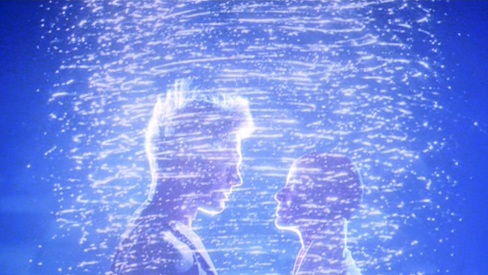Here's a link to the post
Phantom Part II
Here's a link to the post
Phantom Part III
Here's a link to the post
Phantom Part IV
I just watched the 2013 movie Phantom with David Duchovny and Ed Harris. ***Spoilers Alert*** It was about ("based on") a Soviet submarine during the Cuban Missile Crisis (1950's) that was captained by Ed Harris' character and had a secret mission, using the Phantom, that was to be supervised by David Duchovny's character.
This post is about Ed Harris' character who had a very heavy burden that he continued to carry from an earlier captain position. In that former sub tour as captain, he ordered a risky sub maneuver that made him lock some of his crew in an isolated compartment that resulted in their deaths.
This tactic, that should have made him loose his rank or worse, was covered-up because his father was a high leader in Soviet party leadership. Nevertheless, he kept his rank and was given another (secret) mission as Captain in the movie.
He never forgot the mistake he made in pride (the risky sub maneuver) which resulted in giving the order that killed his men.
Before he and his crew are sent on this secret Phantom mission, one of his crew was married in a Russian Orthodox church with the Captain as a witness. After the vows were taken, the Russian Orthodox Priest and the Captain, who had known each other since his marriage, talked.
Russian Orthodox Priest: You wonder why He’s silent and you have so many questions.
Captain: It was always, pretty much, a one way conversation.
…
Priest: It’s as much about what He hears as what He says. Would you like to make a confession?
(Pause)
Captain: Confession for what? Thank you Father.
The Captain could not bring himself to admit that he made a mistake in pride. His conscience did not recognize the sin.
This was from where the idea from Pope Pius XII came that "the sin of the [20th] century is the loss of the sense of sin."
Pope Paul II expands on this idea in
an apostolic exhortation:
Nevertheless, it happens not infrequently in history, for more or less lengthy periods and under the influence of many different factors, that the moral conscience of many people becomes seriously clouded. "Have we the right idea of conscience?"-I asked two years ago in an address to the faithful" Is it not true that modern man is threatened by an eclipse of conscience? By a deformation of conscience? By a numbness or 'deadening' of conscience," Too many signs indicate that such an eclipse exists in our time. This is all the more disturbing in that conscience, defined by the council as "the most secret core and sanctuary of a man," is "strictly related to human freedom.... For this reason conscience, to a great extent, constitutes the basis of man's interior dignity and, at the same time, of his relationship to God." It is inevitable therefore that in this situation there is an obscuring also of the sense of sin, which is closely connected with the moral conscience, the search for truth and the desire to make a responsible use of freedom. When the conscience is weakened the sense of God is also obscured, and as a result, with the loss of this decisive inner point of reference, the sense of sin is lost. This explains why my predecessor Pius [XII], one day declared, in words that have almost become proverbial, that "the sin of the century is the loss of the sense of sin."
The "numbness of conscience" was surely widespread in Communist Russia.
However, it was the father-ness of the priest that saw the Captain's pain from hidden guilt. He knew that the Sacrament of Reconciliation, or confession would start the healing process. Jesus through His Church is the Great Physician who knows that our sins weigh us down. We just need to acknowledge and turn away from them and back to Christ. He wants to take that burden away from us through the grace of the sacrament (the Catholic ER's - the Sacraments of Eucharist and Reconciliation - for small (venial) and great (mortal) sins, respectively).
It is through the priest that the Captain can sacramentally talk to Jesus (in persona Christi - in the person of Christ). In the sacrament, he can have a conversation that can answer many of his questions.
Fr. Barron can explain it further.



